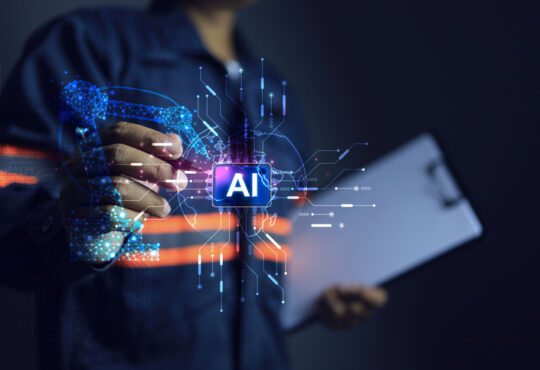
Generative AI has emerged as a disruptive force, compelling businesses across sectors to take notice. Its vast applications, from customer service chatbots to transcription and language translation, are transforming how businesses operate and work. Though enterprises – except the Big Tech – are still at an experimentation stage in terms of Generative AI adoption, AI experts and researchers are sharing varied reactions and opinions ranging from being supportive to being cautious. There is no doubt, however, that the future of generative AI will be based on three foundations – responsible, ethical, and reliable.
Dhiraj Anand – MD & Head of Retail Banking India, NatWest Group

“Generative AI is poised to reshape our world. There are exciting possibilities and inevitable challenges that lie ahead.
Imagine a world where AI doesn’t just mimic, but creates: crafting original artwork, composing symphonies, or even designing life-saving medicines. This is the promise of GenAI, its tentacles reaching into nearly every facet of life. In the realm of commerce, personalized content and marketing will soar, crafted by AI tailored to individual desires. Education will shift gears, with AI tutors shaping curriculum and adapting to each student’s learning pace. The very fabric of our lives will be woven with threads of GenAI.
But within these amazing possibilities comes great challenges. Concerns regarding bias and algorithmic fairness loom large. Who controls the tools of creation? And how do we ensure equal access and representation to all sections of the society across the world? Questions of intellectual property arise, blurring the lines between human and machine authorship. As AI becomes a partner in creation, what does it mean to be “original”?
As with any powerful tool, the responsibility rests with humans. We must develop ethical frameworks for GenAI, ensuring responsible development and deployment. Transparency and explainability of AI decisions are crucial for building trust. We must foster public dialogue and education, shaping responsible users and creators of this new technology.
The future of GenAI is a canvas awaiting our collective brushstrokes. Can we wield this power for good? Can we paint a world of vibrant possibility, where creativity flourishes and human-AI collaboration unlocks new solutions? This is the challenge, and the reward, that beckon us on the threshold of this new era.”
Purshottam Purswani, CTO, Atos, Asia Pacific

“Generative AI (GEN AI) is poised to revolutionize industries through its transformative capabilities. Predictions as reported by Goldman Sachs Research & According to McKinsey & Company suggest a significant boost to global GDP and labor productivity growth, with over 80% of enterprises expected to integrate Generative AI-enabled applications by 2026 (Goldman Sachs Research, McKinsey & Company).
Platforms like Copilot, OpenAI, etc., showcase AI’s effectiveness in tasks such as code augmentation, pair programming, and documentation generation, highlighting its versatility and utility across various domains.
Experimental use cases span a wide range, from enterprise knowledge Q&A and customer service automation to regulatory compliance and business process automation. Generative AI’s ability to summarize documents, interpret regulations, and automate tasks holds promise for enhancing efficiency and productivity.
Despite the productivity improvement, there remains an underutilization gap, as many organizations have yet to fully leverage its potential due to concerns over accuracy and task complexity.
Effective data handling, including aspects like Provenance, Purpose, Privacy, Protection, and Preparation, along with prompt engineering, presents a critical challenge for Generative AI. Each element is crucial and must ensure that the data used to train Generative AI models is high-quality, ethically acquired, and utilized appropriately.
Generative AI continues to evolve and integrate into various industries. With its transformative impact on productivity, creativity, and efficiency, it is becoming increasingly apparent that Gen AI will augment human creativity.”





